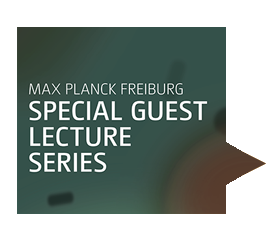Paul Martin - Studying inflammation in wound healing and cancer
Max Planck Special Guest Lecture Series
- Date: Nov 23, 2017
- Time: 01:00 PM c.t. - 02:00 PM (Local Time Germany)
- Speaker: Paul Martin
- University of Bristol, Dept. Developmental Immunology, Bristol, UK
- Location: MPI-IE
- Room: Main Lecture Hall
- Host: Tim Lämmermann

Research Interests
Paul Martin and his lab in Bristol model wound healing in several genetically tractable model organism from the fruitfly through to mice. Their particular interest is the wound inflammatory response which they have shown to be causal of scarring at the wound site. Current goal is to use a mix of live imaging and genetic studies to determine how recruited innate immune cells direct aberant deposition of collagen at sites of tissue damage. Recently, the team has also begun investigating parallels between wound healing and cancer. Therefore, they use translucent zebrafish to model cancer surgery, in particular investigating how the wound inflammatory response impacts on immune cell recruitment to nearby transformed cells and what might be the downstream consequences of this.
CV
Paul Martin did his undergrad degree at Sussex and then a PhD with Julian Lewis at King’s London, before setting up lab in Oxford Anatomy; he moved to UCL Anatomy where he was for 10 years and then in 2003 moved to a joint position in Bristol’s Biochemistry and Physiology Departments. His lab works on wound healing and has established models to study repair and inflammation in mouse and zebrafish and Drosophila. The current twin foci of his lab are to investigate the genetics and cell biology of wound inflammation, in order to learn how best to modulate the inflammatory response to prevent fibrosis, and identifying parallels between wound and cancer-triggered inflammation. He was elected a Fellow of the Academy of Medical Sciences in 2011 and to membership of EMBO in 2012.
(source: lab page // Paul Martin, Bristol)